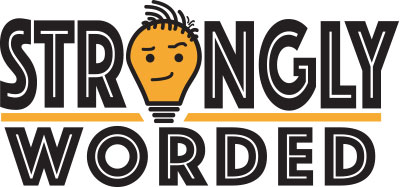Apparently, many Target workers who won a $15 minimum wage from their employer back in September 2017 now receive fewer hours and reduced benefits from the company. As a result, many of them now see lower overall earnings than they did before the wage hike. If only there was some way they could have known beforehand!
What Seems So Simple…
Listen, I know this one seems really straightforward… there are people who have a job (or even jobs), work long hours and can’t keep their fiscal heads above water. Meanwhile, the companies they work for make millions – or even billions – of dollars each year and don’t share it with their low-level workers. It’s therefore perfectly reasonable to mandate by law that these companies pay some reasonable minimum wage to their workers.
Slam dunk, no?
Unfortunately, this is another situation where actual results vary wildly from intended results.
…Takes an Unexpected Detour
Let’s start our minimum wage thinking with that gnarly beast, the Law of Demand. It declares unequivocally when you raise the price of a good or service, the amount of that good or service demanded goes – all together now – DOWN! Labor is actually a service bought by companies. The “price” of that service is wages. Taking the price of labor higher will necessarily result in a smaller amount of it being demanded by companies. It’s like physics my friends… we truly can’t change it.
So, what does that mean out in the real world? It means digital ordering kiosks at fast-food restaurants and self-checkout lanes at stores (like Target). It shows up as the elimination of jobs that don’t create as much value per hour as the minimum wage costs. It manifests as businesses closing locations with borderline profits and companies simply going out of business. Unfortunately, each of those reduces the number of jobs available. Worse yet? Poor neighborhoods – already underserved by businesses – are frequently the first to lose services because they are often the locations with the lowest profitability for the company.
Hurting in Ways We Forget to Consider
Next issue… minimum wages also eliminate many of the roles that serve as first jobs. John Oliver parodied this notion a couple years back saying, “What is a starter job!? Is that like a starter home? That’s ridiculous!” But I know how much I benefited from my “starter” jobs and I’ll bet you do too. At a very low cost to my employer, I made all the inevitable mistakes you make when you’re new at something. I once mowed half a lawn and just left. Being useful at work is a learned skill and those first jobs basically serve as work school. Demanding you be paid $15 an hour to be largely useless is a killer for teenagers and anyone else looking to enter the workforce.
Finally, small businesses consistently create the majority of new jobs in our economy and they suffer the most when we hike minimum wage. Small companies don’t have the money to invest in labor-saving technology, so they rely more on labor than big companies do. A high minimum wage allows bigger companies – with more money to invest – to out-compete their smaller competitors with labor-saving innovations. Rumors indicate some proponents of a higher minimum wage may not be the biggest fans of large corporations. They should know who the winners and losers will be here.
The intent behind minimum wage is to help low-wage workers. But raising the minimum wage reduces the number of jobs available, hurts the odds of new entrants into the workforce finding their first job and hurts the businesses responsible for the creation of the majority of new jobs. Policies absolutely must be judged on their effects, not on their intent and minimum wage hurts those it’s supposed to help.

